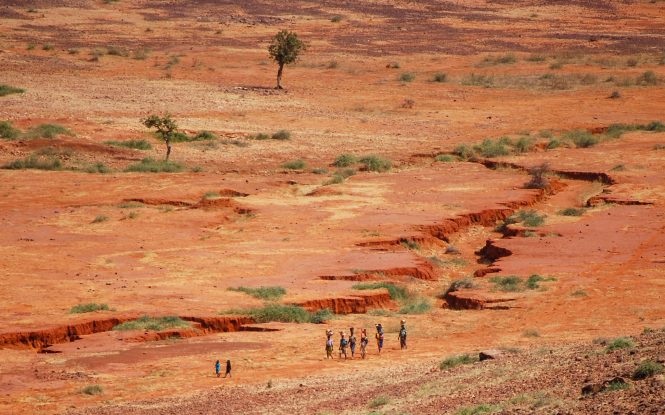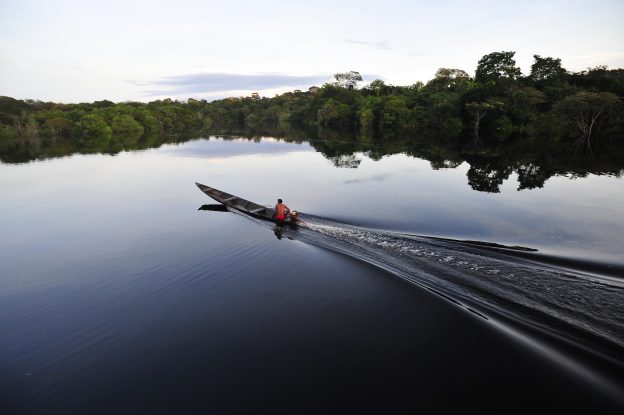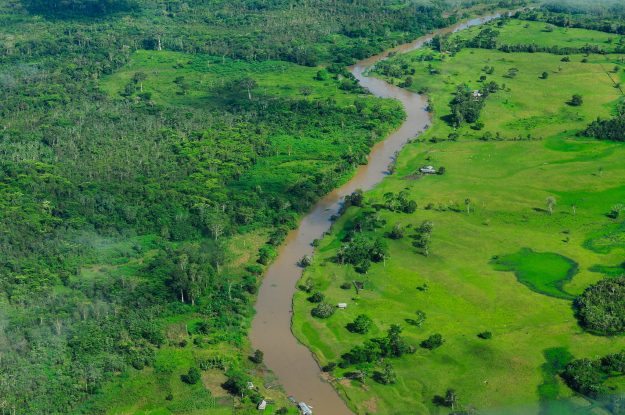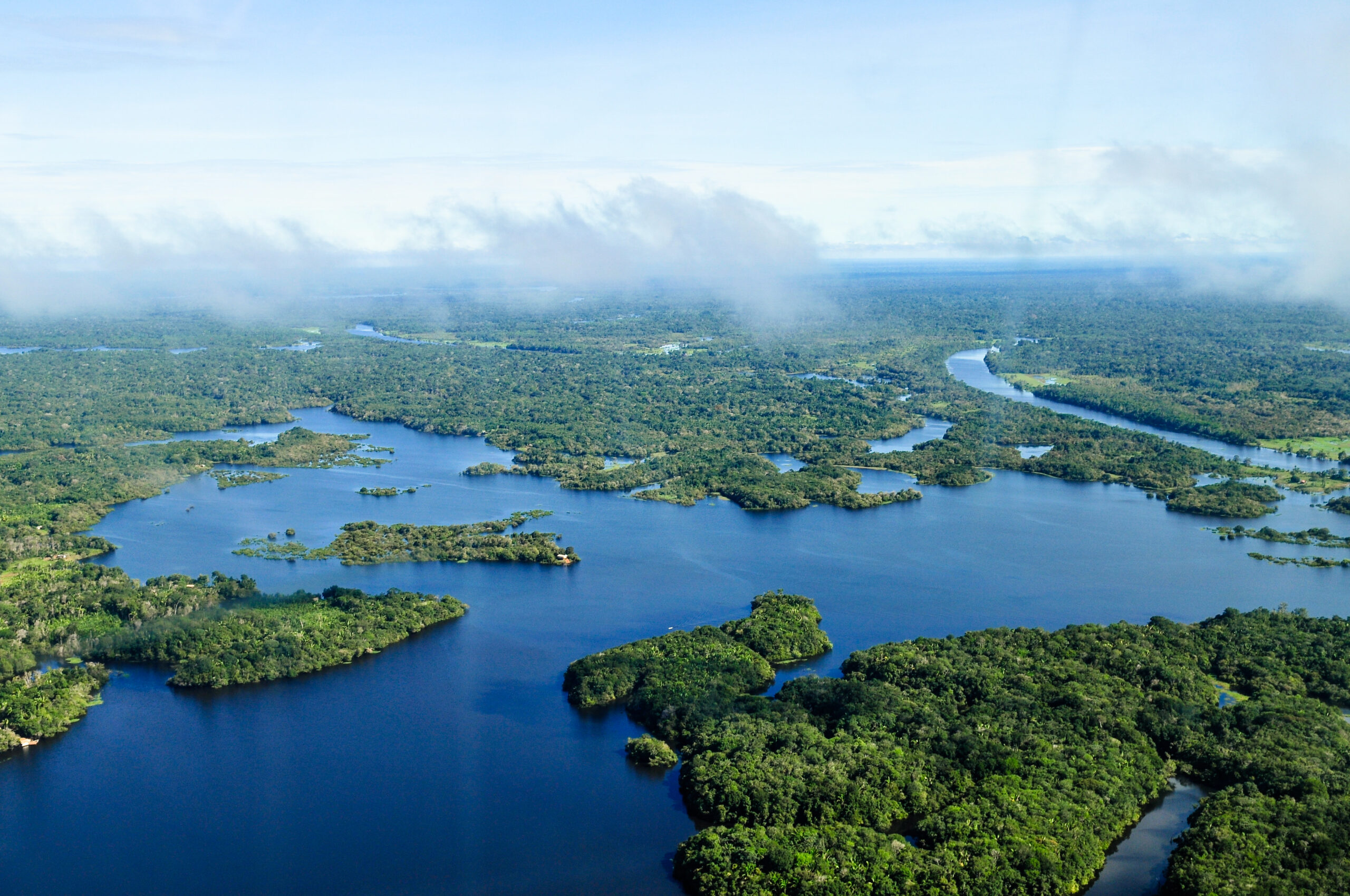Climate change is driving the worldŌĆÖs coral reefs to die off irreversibly, signalling the first in a series of dangerous tipping points that could lead to ecosystem collapse sooner than previously anticipated if rapid action is not taken, according to a new study.
Recently, a team of 160 scientists┬ĀŌĆö┬Āled by Tim Lenton at the University of ExeterŌĆÖs Global Systems Institute┬ĀŌĆö┬Āreleased the Global Tipping Points report, whose conclusions were both sobering and encouraging.┬Ā
The report described the unprecedented dieback of warm-water coral reefs as the first tipping point. Other ecosystems are also at risk of collapse through the melting of polar ice sheets; deforestation and climate change in the Amazon rainforest; and disruptions to the ocean current called the Atlantic Meridional Overturning Circulation, or AMOC.┬Ā
On the flipside, the scientists observed positive tipping points in the global adoption of solar energy and wind power, as well as societyŌĆÖs growing acceptance of electric vehicles, battery storage and heat pumps in leading markets.┬Ā
The study was released just weeks before thousands of participants from around the world gather for the COP30 climate summit in Bel├®m, Brazil, where numerous sessions are scheduled to discuss ways to avoid interconnected tipping points in EarthŌĆÖs ecosystems.┬Ā
A farmer tends her crops in Tintilou village, Burkina Faso. Locally led adaptation and sustainable land use can foster positive climate tipping points that strengthen livelihoods and resilience.
Photo by Ollivier Girard / CIFOR-ICRAF
Tipping points┬Ā
Almost two decades have passed since Lenton and Hans Joachim Schellnhuber formally introduced the concept of ŌĆ£tipping pointsŌĆØ to climate science, adopting language that Malcolm Gladwell used in a best-selling book to describe the forces of social change.┬Ā
So, what exactly is a tipping point? It is ŌĆ£a critical threshold beyond which a system reorganizes, often abruptly and/or irreversibly,ŌĆØ according to the Intergovernmental Panel on Climate Change (IPCC).┬Ā
Like Gladwell, climate scientists recognize that a tipping point can be positive or negative, framing the problem of climate change in a way that promotes both hope and awareness.
ŌĆ£Look at the world around you. It may seem like an immovable, implacable place. It is not. With the slightest push ŌĆō in just the right place ŌĆō it can be tipped,ŌĆØ Gladwell wrote in The Tipping Point: How Little Things Can Make a Big Difference, published in 2000.┬Ā
A tipping point could mark the start of a technological trend┬ĀŌĆö┬Ālike electric vehicles┬ĀŌĆö┬Āthat supports the Paris AgreementŌĆÖs goal of limiting the global average temperature increase to 1.5 degrees Celsius above pre-industrial levels. Or it could be an environmental phenomenon that might lead to irreversible feedback loops, like the degradation of coral reefs, or rainforest dieback in the Amazon.┬Ā

Photo by Tri Saputro / CIFOR-ICRAF

Photo by Ollivier Girard / CIFOR-ICRAF
Forests: Potential as a positive tipping point┬Ā
So, what do these climate tipping points mean for policy, forests and livelihoods?
ŌĆ£The main problem is that powerful voices in policy debates require hard evidence of predicted disasters, and by the time that is obtained, it may be too late to act,ŌĆØ says Beria Leimona, theme leader forclimate change, energy and low-carbon development at the Center for International Forestry Research and World Agroforestry (CIFOR-ICRAF).┬Ā┬Ā
ŌĆ£Calls for a ‘precautionary principle’ have been ignored, and the global commitment to ‘red lines’ in the Paris Agreement was undermined by the short-term interests of the fossil-fuel lobbies and their hold on major countries,ŌĆØ she adds.
Leimona sees an urgent need for precautionary policy and investment decisions that emphasize the importance of water, climate and forest interactions in reducing destructive tipping points. Forests should be recognized as central regulators of hydroclimate, while biodiversity and water are key to effective climate solutions.┬Ā
ŌĆ£As CIFOR-ICRAF scientists contribute to the unravelling of rainfall-forest relationships, we plead for a rapid change in climate policies ‘beyond carbon’ that sees trees and forests as key to the current hydroclimate, with options for interventions that are still feasible if acted upon soon and with an appropriate sense of urgency,ŌĆØ she says.┬Ā
Payments for ecosystem services (PES) and innovative finance also play an important role in fostering ŌĆśpositiveŌĆÖ tipping points when smallholders and local communities are included, according to Leimona. For example, performance-based PES become negative when only farmers with more than 1,000 hectares of land are rewarded.┬Ā
ŌĆ£You need to ensure that these benefits also involve smallholder farmers,ŌĆØ she says. ŌĆ£Otherwise, it would be one of the negative tipping points. So, people and livelihoods are vital factors in the policy debate. There must be incentive systems for smallholders.ŌĆØ
Follow┬ĀCIFOR-ICRAF on Instagram┬Āas we bring you stories, insights and science straight from┬ĀCOP30 in Bel├®m.









